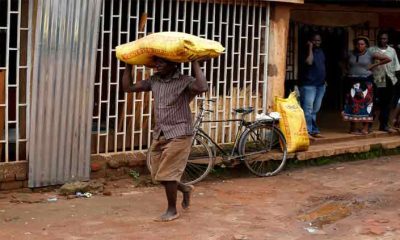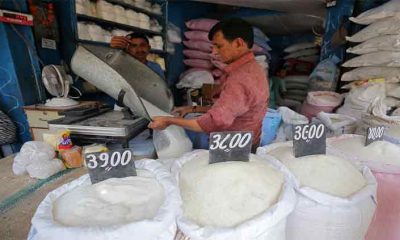The money exchange shop in Lebanon s Bekaa Valley was buzzing with business. Cellphones pinged endlessly and employees shouted out various rates as customers flocked in carrying plastic bags of the crashing local currency to buy U.S. dollars.
“Welcome to the Wall Street of Lebanon,” grinned the storefront s owner, a machine gun leaning on a rack behind him in case of a robbery.
Cash is now king in Lebanon, where a three-year economic meltdown has led the country s once-lauded financial sector to atrophy.
Zombie banks have frozen depositors out of tens of billions of dollars in their accounts, halting basic services and even prompting some customers to hold up tellers at gunpoint to access their money.
People and businesses now operate almost exclusively in cash. The local currency in circulation ballooned 12-fold between Sept. 2019 and Nov. 2022, according to banking documents seen by Reuters.
Most restaurants and coffeeshops have hung apologetic signs stating that credit cards are not accepted but that dollars are, at the fluctuating parallel market rate.
COLLAPSING POUND
Lebanese use mobile apps to check on the collapsing pound, which has lost some 97% of its value since 2019.
Fleets of mobile money exchangers zip to offices or homes to carry out transactions. Highways are dotted with billboards advertising money-counting machines.
With credit cards redundant, people document big transactions by taking pictures of the dollar bills used, fanning them out to show the serial numbers.
Even the largely paralysed Lebanese state is moving towards the cash economy: the finance ministry has considered requiring traders to pay newly-increased customs tariffs partly in cash.
With more bank notes in circulation, crime has risen. Elie Anatian, CEO of security firm Salvado, said yearly sales of safes had grown steadily, with a 15% increase in 2022.
Other businesses are faltering. Omar Chehimi imports smaller shipments for his home appliance shop with cash he has on-hand, since banks stopped granting letters of credit for large ones.
“Even the companies we source from – Samsung, LG – are only dealing with us in cash,” he said, examining a crumpled $20 bill a customer had used to buy an electric heater.
WESTERN CONCERNS
Any recovery hinges on government action to address some $72 billion of losses in the financial system and revive the banking sector. But politicians and bankers with vested interests have resisted reforms sought by the International Monetary Fund to fix the situation and access international aid.
Paul Abi Nasr, CEO of a textile company, said the cash economy made it “practically impossible” to enforce taxes “because everything can simply stay outside of the banks”.
“The government s ability to be financially sound down the line hinges on this,” he said, adding that the cash economy also risked Lebanon being listed as a country falling short in the struggle against money laundering and terrorist financing.
Western governments, which oppose the role of the heavily armed, Iran-backed Hezbollah group, share those concerns. A Western diplomat said foreign governments were worried illicit transactions would rise as cash was harder to track.
The U.S. Treasury last week sanctioned Lebanese money exchanger Hassan Moukalled and his business for alleged financial ties to Hezbollah, saying he helped “transfer cash” on its behalf and recruited money exchangers loyal to the group.
Post Views: 87


 Fashion3 months ago
Fashion3 months ago
 Sports3 months ago
Sports3 months ago
 Sports3 months ago
Sports3 months ago
 Fashion2 months ago
Fashion2 months ago
 World3 months ago
World3 months ago
 pakistan3 months ago
pakistan3 months ago
 pakistan3 months ago
pakistan3 months ago






















